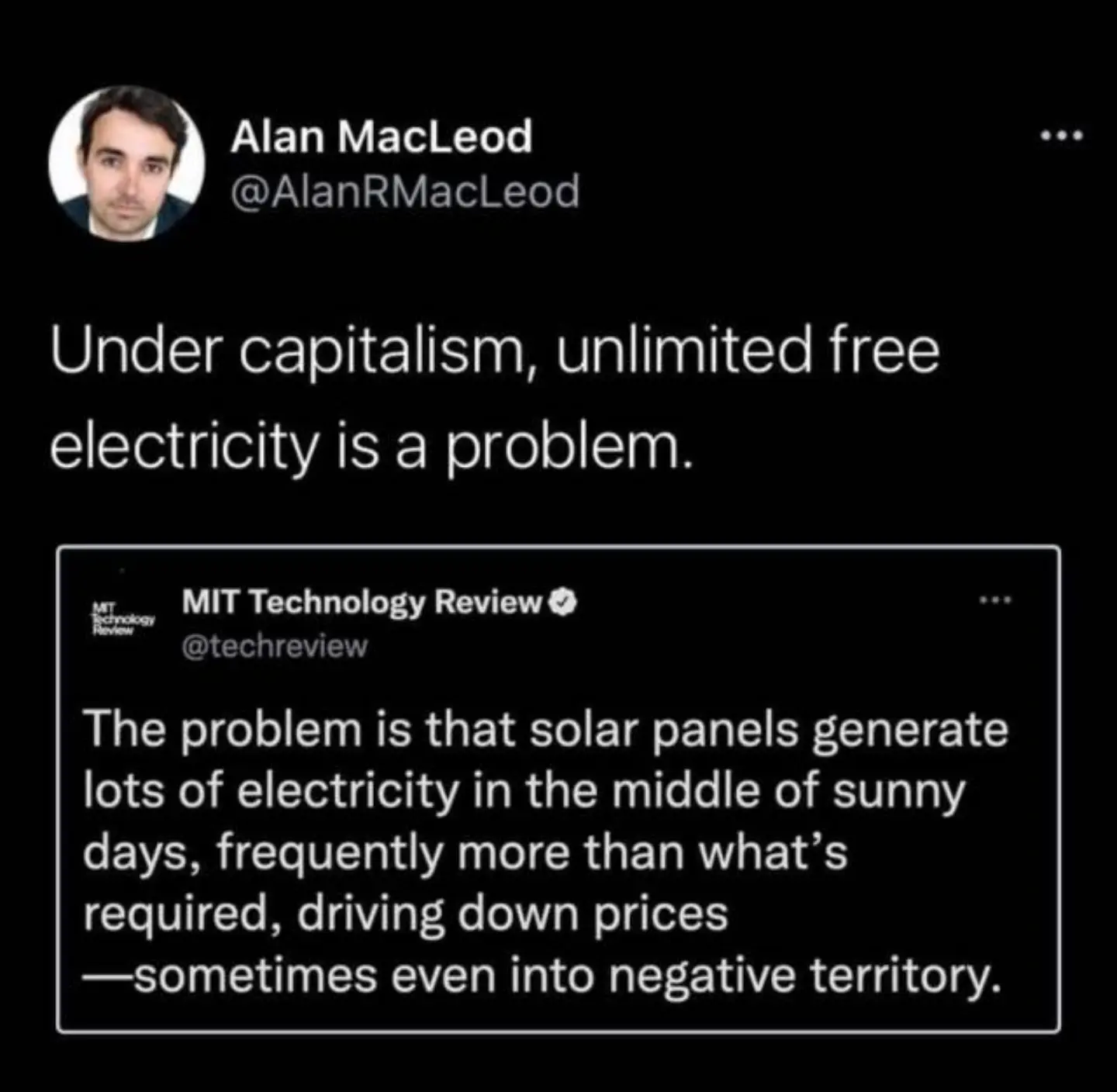this post was submitted on 09 Apr 2024
1655 points (96.0% liked)
Solarpunk
5444 readers
88 users here now
The space to discuss Solarpunk itself and Solarpunk related stuff that doesn't fit elsewhere.
Join our chat: Movim or XMPP client.
founded 2 years ago
MODERATORS
you are viewing a single comment's thread
view the rest of the comments
view the rest of the comments

But too much power on the grid isn’t “here, have at it”. It’s fried devices and spontaneous fires breaking out. The grid can’t “hold the power”, only pumped and battery storage can, of which we have nowhere near enough. The grid literally cannot work if other producers put more electricity on to it.
If you have smart meter, you can literally be paid to use power at that point.
Nobody said it can hold power
I think we're quite a long way off from "too much power on the grid", no? Even in America we regularly over-strain our grids. My power provider has even started discouraging folks from using their power as much, and charging more, because they simply decided not to do this work of increasing the amount generated. Like my bill has never once gone down, this paying people to use power concept is completely unheard of in practice.
That said I'm willing to be wrong. If you can show me evidence we have "too much power" I'd be happy to take that to my elected officials, insist I should get paid to heat up my noodles or whatever.
We don't have too much power overall, but there are moments where solar and renewable production in a region exceeds usage in that region.
Where I live at the moment (UK), people with home batteries are regularly paid for storing excess energy from the grid. I haven’t got a clue about the American energy market, but intermittent energy production is causing huge strain on European grids.
Interesting... Can y'all make room for one more over there? The bill for my 3-bedroom home is around $150 per month T_T
wait until you figure out how we solve this problem...
wait for it...
You just don't produce that energy.
lol. Yes, it’s that simple.
that's how we've been doing it for the past 2 centuries, it'll be how we continue to do it for the next 2 centuries.